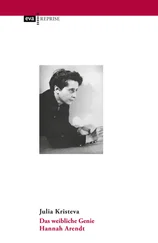“Hold on, slow down. Narcissists, yes, clearly they are: the withdrawal from the world of other people, the denial of external reality, the retreat into traumatic, therefore unnameable, desire. And the refusal of language — again, I’m with you — following hurt, separation, or bereavement. Unhappy Narcissus invents imaginary nuptials with lost Object, transformed into an ideal but just as imaginary Object, not even by now an ‘object’ separate from the ‘subject,’ but the Great Totality in which loser and lost are both subsumed. Whether you want to call it ‘fundamental principle of Being,’ Being, Other, God, Cosmos, Mother Goddess, Tao, God-man, who cares, it’s about ‘unbridled jouissance ,’ as we used to say in ’68 on the way out of our Lacan seminar. No me, no you, communicating vessels, denial of separation, the interior swallowing the exterior in one gigantic orgasm. I know that stuff. And you? Vaguely, okay, but it rings a bell. Now. My problem is with the way you assume that they obtain jouissance from separation itself. You’d have to be more than ordinarily masochistic, wouldn’t you?” I try to sound naive.
“Think about it. To counter the fear of death, and the tiny deaths and losses of every kind that are the milestones of life, religions invented a major consolation: the afterlife, in a Beyond where the ideal Father awaits. More subtly, a space both radiant and eternal. This mystical location, we’ll call it Heaven, contains Daddy and Mommy reconciled at long last and granting me permission to enjoy immortal pleasure, because this is the point: pleasure for ever. Others prefer the cosmic breath of yin and yang, in their equally harmonious cohabitation. Why, people can reunite what they like, to stop the flight of time…But the mystics, you see, weren’t satisfied with this promise. Too easy. Not that they rejected it, either. You will concur, oh dearest”—my colleague can be a little precious at times; there are still plenty of his sort who want to sound like Lacan—“that they were given to piling up the most with the least, the same with its opposite. Refusing to choose, you see. ‘Apophatic’ thought, to use a fancy word, was extremely common among mystics, as the experts in the field will tell you. Because, not content with the mirage of Heaven, our seekers after the Holy Grail identify with separation itself, which Heaven will heal, even when they are not into death as such. As if lack, absence, Nothingness were the final, most secret and precious legacy offered by the elusive love-Object, the lost or inaccessible partner. Sinuous Nothingness is the absolute essence of the desire they felt, feel and always will feel for this unknown, unknowable, impossible object of desire, the Beloved.”
“You make them sound like psychoanalysts avant la lettre !” I’m being provocative here, I haven’t read his piece; he may as well explain it to me face to face.
“They were, in a way…” A meditative pause. “At any rate they never ceased to utter the insatiable truth of desire. That’s it: they knew that death or Nothingness make pleasure, tireless as it is, work harder, and unlike ordinary believers they weren’t content with the promise of a Beyond that would negate this negative machinery. What’s more they never failed to thoroughly annihilate themselves in death and Nothingness, against and because of which the promise of Heaven was constituted. But since they were apt to think in paradoxes, they didn’t miss out on the benefits of the promise, either. In short, the mystical perspective is nothing less than the corpse, which is no different from Nirvana! A splendid paradox! That’s why all their insights are built on antithesis. Like this outstanding phrase, wouldn’t you agree, from the Koran: ‘He is the First and the Last, the Manifest and the Hidden.’” 1
“All very interesting, but to get back to business, what are the psychic advantages for them in all this?” I have to remain pragmatic: our job as mind doctors is to treat people.
“Elementary, oh dearest! Man’s access to nonbeing is what achieves his divinization, according to theologians and to some philosophers, because the creature has got to be put to death so as to clear a space for reaching the Creator and dissolving into Him. But that’s not all. Let me explain the relevance to your everyday practice, although I suspect you’ve worked it out already and you’re just letting me talk: ah, women, flatterers vile! Where was I. Seen from our analytical bubble, this psychic disturbance, which reacts to the anguish of separation and death by identifying with the death that threatens it, is a way of detaching oneself from the Mother —because we all agree, yes, that the mother is the first object of separation? — without fixating exclusively on the ideal Father . Neither father nor mother: I settle on nothing , to preserve my desire for both . This trick of indefinitely prolonging the ‘depressive position,’ as Klein calls it — whom you’ve just discovered, and about time, too — allows the child to distance itself indefinitely from the mother while postponing, indefinitely, the merger with the father…You’re not vexed, I trust, you’re still on board? Delights of infantile omnipotence, perverse* [*French père-vers : Lacanian pun meaning toward-the-father. — Trans.] traps of a regression that only indulges in infantile behavior the better to merit the grace and power of the father! Well, then, the mystical solution is similar, but goes further. It succeeds in inhabiting, psychically and physically, the extreme tension that binds the subject to her and to him, the Mother and the Father, the feminine and the masculine, until the annihilation of that tension and with it of the loved objects and of the subject itself. They called it ‘peace.’ Or ‘serenity,’ if you prefer.”
“Of course I do…” I put on a compassionate smile.

I find myself wondering how Jérôme Tristan handles Mrs. Tristan, Aude Tristan to be precise, also a therapist, and a militant feminist. Couples in general are a mystery to me, I grant, but a couple of analysts defies comprehension. Shared monomania, complementary neuroses, hetero gender gap filled by some alleged “homo” harmony…Wisdom or tedium? My colleague looks uneasy and somewhat glum. Back to the mystics.
“Come on, Jérôme, these men and women must have been awfully vulnerable, besides possessing amazing psychic plasticity and towering strength of soul, in order to wrestle the terror of death into a triumph like that!”
“Yes, but the triumph is dogged by setbacks, from way-out mental derangement to being literally put to death, not to mention a paranoid hatred for the world that plainly overtakes many visionary individuals and groups whose ritual practices accentuate passivity, resentment, dolorism; in a word, castration. The Nazis themselves attempted to recruit the German mystics to ‘resist’ the ‘Syrian Yahweh’—on whom they blamed all Europe’s ‘misfortunes’—and launch a new religion stripped of every alien concept from Syria, Egypt, and Rome, as the National Socialist ideologue Alfred Rosenberg would have it. 2Rosenberg actually claimed, in horribly twisted fashion, to be an admirer of Meister Eckhart!”
“But this loving exaltation of their status, as they see it, of chosen ones, how is it not downright hysterical erotomania, rather than narcissistic regression? If you’ll pardon my crudeness. Remember that eighteenth-century saint who projected herself so entirely into Christ’s holy foreskin that she experienced feverish fondlings, a burning in her breasts, and even the sensation of being fellated…”
Читать дальше













